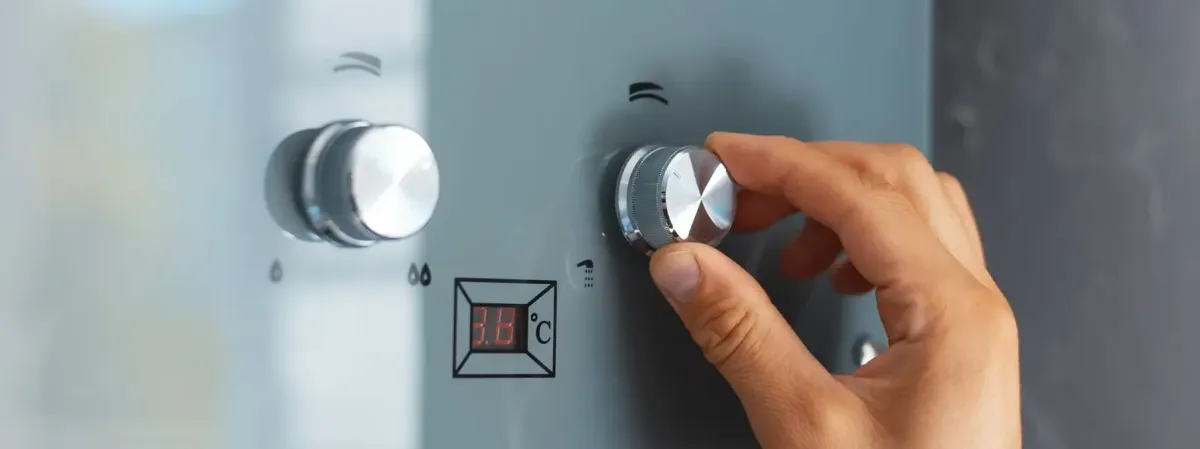
Understanding When to Repair or Replace Your Water Heater
10 Signs Your Water Heater Needs Repair or Replacement
A reliable water heater is essential for any household. From hot showers to running your dishwasher and washing machine, it’s easy to take your water heater for granted—until it stops working the way it should.
At Eddyson Plumbing, we help homeowners recognize when it’s time to call in a pro or consider replacing an aging unit altogether. In this post, we’ll break down the top 10 signs your water heater might need repair or replacement, and how to decide what to do next.

1. Your Water Isn’t Hot Enough
If your water never seems to get beyond lukewarm, there’s likely a problem with the heating element or thermostat. Over time, sediment can build up in your tank, making it harder to heat water efficiently. If you're always adjusting the temperature or waiting longer than usual for hot water, it’s time to have it checked.
2. Hot Water Runs Out Too Quickly
Running out of hot water faster than you used to? Your tank may be losing capacity due to internal corrosion or sediment buildup. These blockages reduce how much usable hot water your system can store, which means you’ll run out faster—even if your usage hasn’t changed.
3. Water Temperature Fluctuates
Does your shower swing from hot to cold without warning? Fluctuating temperatures are often signs of a failing thermostat or burner. Besides being frustrating, this can signal deeper problems with your system’s internal components.
4. Moisture or Leaks Around the Tank
Notice puddles or damp spots near your water heater? Even small leaks can lead to big problems like water damage or mold growth. Whether it's a failing pressure relief valve or internal corrosion, any leak should be addressed right away.
5. Rusty or Discolored Water
If your hot water looks rusty or has a metallic taste, internal corrosion may be to blame. This is especially common in older units where the anode rod—your tank’s built-in corrosion defense—has worn down. It could be time for a replacement before a serious leak develops.
6. Rumbling or Popping Noises
Loud noises coming from your tank are usually caused by sediment heating up and creating steam pockets. This puts extra stress on your system and reduces its efficiency. If your water heater sounds like a coffee pot boiling over, it needs professional attention.
7. Visible Corrosion on the Exterior
Take a look at the tank. Are there signs of rust, pitting, or scale buildup? These are all indicators that corrosion has started, which can lead to leaks or full system failure if left unchecked.
8. Your Water Heater Is Over 10 Years Old
Most water heaters have a life expectancy of 8 to 12 years. If yours is older and showing signs of wear—like poor performance or rising energy bills—it’s probably time to start shopping for a replacement.
9. Energy Bills Are Creeping Up
If you’ve noticed higher utility bills without a change in usage, your water heater might be losing efficiency. As the system ages or fills with sediment, it has to work harder (and use more energy) to do the same job.
10. You’re Scheduling Repairs Too Often
If you’ve had to call for repairs multiple times in the last year, those costs can add up fast. When minor issues keep cropping up, it might be more cost-effective to replace the unit instead of continuing to patch problems.
Should You Repair or Replace Your Water Heater?

Deciding between repair and replacement depends on a few key factors:
When Repair Makes Sense:
The unit is under 10 years old
The issue is isolated (like a broken thermostat or minor leak)
Your energy bills haven’t spiked
When It’s Time to Replace:
The heater is 10+ years old
You’re dealing with recurring issues or multiple warning signs
Repairs are becoming expensive and frequent
Your energy bills are climbing steadily
Quick Checklist: Is Your Water Heater in Trouble?
☐ Lukewarm or inconsistent hot water
☐ You run out of hot water too fast
☐ The tank is noisy or rumbling
☐ Discolored or foul-smelling water
☐ Visible rust or water near the unit
☐ Over 10 years old
☐ Rising energy bills
☐ Multiple recent repairs
If you’ve checked more than a few of these boxes, it’s time to give us a call.
Need Help with Your Water Heater? Contact Eddyson Plumbing
Our licensed professionals at Eddyson Plumbing are here to help you diagnose, repair, or replace your water heater with expert care and honest advice. We offer thorough inspections, transparent pricing, and energy-efficient options that will keep your home comfortable—and your bills lower.
Don’t wait for a total breakdown. Contact us today to schedule your water heater inspection.